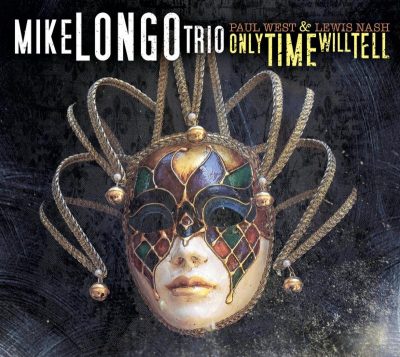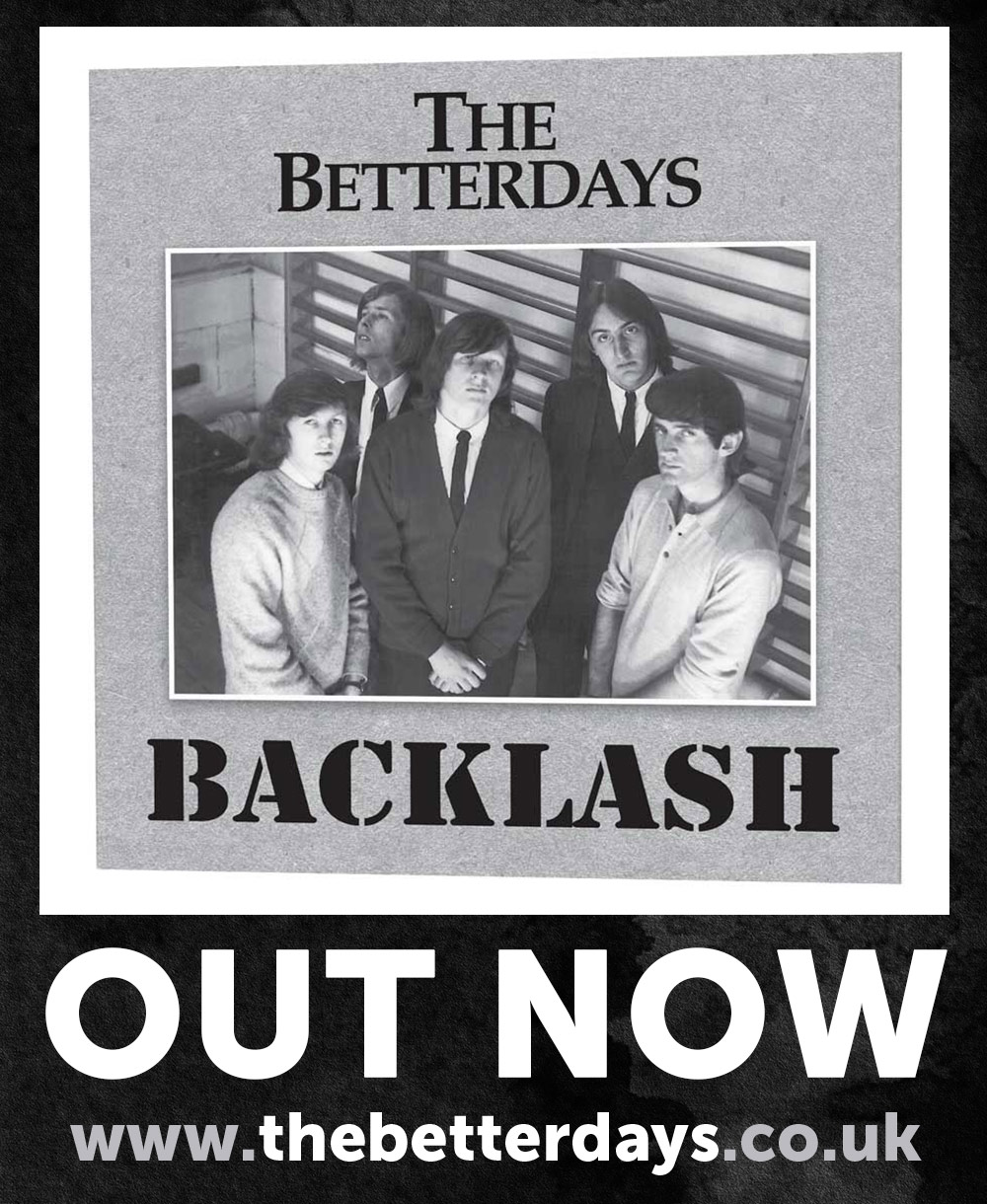 (5 / 5)
(5 / 5)
This time last weekend, I was writing a review of a new Dizzy Gillespie live album, a “lost” recording from a show in Germany, which prompted me afterwards to delve into some old Dizzy stuff from my own collection. I was re-acquainting myself with his marvellous pianist Mike Longo. Fast forward exactly a week, and I am sat here writing a review of Mike Longo’s new record. Really good it is too. Really, really, really good is probably more accurate. The feel across this record, and the “no fat” production value is something special.
A tight trio format, 78-year-old Mike on piano joined by the formidable talents of 83-year-old Paul West on bass and the baby of the trio at 58-years-old, Lewis Nash on drums. An “A-Team” for sure. Drummer Nash is a visionary player; and puts me in mind of Max Roach and the UK’s own, late and great Phil Seamen. He has a dexterity and a feel that melts into the bed of the track, and doesn’t ever become “groovus-interruptus” or distract from the unit sound. Bassist West often nails the melody on his instrument, and most bassists cannot even think about doing this, let alone achieve it. As Mike Longo says: “he’s able to play in the cracks” and he has the same rhythmic concept as the pianist.
A Baker’s dozen here; Mr Longo’s 20th release for the CAP (Consolidated Artists Productions) label which he runs with his wife, and his 26th since debuting as a band leader in 1962. Included are two compositions from his former boss for 26 years, the legendary and pioneering Dizzy Gillespie. Mike worked as pianist and musical director for Dizzy until Gillespie’s death. Bassist Paul West worked with Dizzy too, twice: in his big band in the 1950s and again in his quintet alongside Longo in the 60s. Drummer Lewis Nash worked with the horn legend several times in subsequent years.
Michael Longo Jr. is the son of a band-leading bassist father and a church organist mother. He was inspired as a child by boogie-woogie pianists Sugar Chile Robinson and Jack Fina. He was later inspired by jazz piano master Oscar Peterson, who gave Longo six months of private tuition. I can hear the Oscar DNA in Mike’s fingers across this record. The 13 cuts on “Only Time Will Tell”, opens with a lovely Samba treatment of the tune “Tomorrow”, from the musical Annie. I defy you not to be humming, whistling or singing the chorus by the end of the four minutes!
“Stepping Up” is a Longo-penned song, a Bossa-nova flavour and a song inspired by the terraces on Mount Carmel in Haifa, Israel, that lead to the world HQ of the Baha’i faith, of which Longo is a follower. Nash’s work on the cymbals and West’s measured bottom end skills fill the track out nicely.Then the first of the two Monk tunes; “Nutty”, or as Dizzy apparently called him, “The Maharajah of jazz”. I like that title. Maybe I could be called “The Wizard of words”, among the many other things I have been called!
Bassist Oscar Pettiford’s “Bohemia After Dark” has a great groove here, a stand-out cut, and the three really get into their stride and lock together chemically. Like the whole of this record; everything in its place but nothing at all clinical and mapped out about it; totally fluid and free. I think that pretty much sums up what jazz is all about; doesn’t it? You can definitely hear Oscar’s influence here. Gorgeous light of touch bass solo from Paul West, which also gives Lewis a few bursts of his considerable skills under the spotlight.
The title cut, a gentle waltz, was written by Longo while watching a documentary about Lyndon B Johnson, the former US President – the 36th US President who served from 1966 to 1969, after JFK was shot and killed. LBJ as he was known, was succeeded by Richard “I am not a crook” Nixon. Longo felt he was “a good man” but “everyone hated him at the time”, so feeling sorry for him during this TV doc’, Mike sat at the piano and came up with this poignant piece. In a minor key throughout, until it ends with a major; from sad to happy kind of deal. I wonder if he is going to pen a tune for Trump, as most of the world detests that man, doesn’t it? The point Mike makes with the title, “Only Time Will Tell”, is that after the passing of time, things may well appear different than how originally perceived. Will that be the case with the current incumbent, I wonder? I think most have him sussed already.
Another tune Longo came up with, “Why Not Me”, is my very sentiment every weekend when I check my lottery numbers, and screw up the ticket and chuck it in the bin! Some stunning runs on this Latin feel cut from Mike, and a warm but mysterious feel to it. The Jimmy McHugh standard “Exactly Like You” is offered up at an ultra-slow tempo. A tad too slow and sombre for my tastes. The gentle “Just A Thought”, penned by Dizzy in the 1960s as a piano feature, has not previously been recorded. Mike recalls his first night in Dizzy’s band and having the legend put the chart to this song in front of him, and he had to sight-read it, playing it well and prompting his boss to yell out “Hell, yes”, afterwards.
But the next night, still on a high from his triumph the previous evening, Mike says “I fell on my butt as a player”, and he asked Dizzy if he had to come up to this level every night. Dizzy’s response was, a bit of a clue: “What the hell do you think I’m paying you for?” He realised there and then that he had to work, and work hard every night. Mike says he has spent every day since, working to achieve and maintain that level. I think the late Mr Gillespie would be happy with what he would hear on this collection, and with a wry smile, maybe tell Mike he had more than achieved those goals set by his hard (but brilliant) pioneering task master.
The trio’s treatment of the Heinz Eric Roemheld composition “Ruby”, gets a unique swing treatment; the tune is from the 1952 movie, “Ruby Gentry”, starring Charlton Heston, Karl Malden and Jennifer Jones , directed by King Vidor. Roemheld wrote the entire score for the film. Nash and West drive this one along with vivid brush strokes of colour. The second Monk composition, “Brilliant Corners”, a twisting and turning, complex time signature that chops and changes as the almost eight minute track proceeds; a perfect tribute to Monk. An acquired taste for some perhaps, but it shows us how accomplished Mike Longo is on his instrument, and how he gets inside a tune and makes it his own.
Another Longo tune, “Conflict Of Interest”, was originally on a 1994 quintet album, “I Miss You John”, dedicated to Dizzy who died in January 1993 at 75-years-old. Mike never called his boss Dizzy; he called him John, as a very close friend as well as his pianist and musical director for close to three decades. This tune has not been played as a piano feature before now. It works really well with this blues flavour. Lewis Nash’s slinky fills and crisp and gifted snare work adds huge value, and Paul West comes into his own too on bass on this infectious cut.
The up-tempo “Wheatleigh Hall”, was first recorded by its writer, Dizzy Gillespie, in 1957 on an album with two more legends of jazz, Sonny Stitt and Sonny Rollins, the latter I have had the great honour and pleasure of interviewing for Music Republic Magazine (see our Features Zone for Part 1 and Part 2 of that fascinating insight into the life and career of the saxophone colossus).
Fabulous result here, and it motors along at a fair pace. With lesser mortals on bass and drums, (Nash gets his turn for a solo on this one, and can you believe he has played on more than 400 albums in his career, and he is not yet 60?) it could well have ended up a bit of a mess. The dynamics and musical telepathy they display is quite something. The gently swinging “Just a Thought,” also written by Dizzy Gillespie, as a piano feature in the 1960s, but until now has never been recorded.
The lush and romantic closer here, “Memories Of You”, written by Eubie Blake for the Broadway show, “Lew Leslie’s Blackbirds of 1930”, leaves us with yet another emotion-soaked reading by this Premier Division jazz trio. Nash’s sensitive brush work is a perfect decision. You can hear Mike’s love of boogie woogie at times, and thoughts of the likes of Errol Garner and McCoy Tyner sprang to mind too. This was the only time on the album where I longed for strings and a fuller sound, but that is not to say this trio format version doesn’t work, because it does.
The original song had lyrics and was sung by Minto Cato in the hit musical. A 1930 version recorded by Louis Armstrong featuring Lionel Hampton, is the first known use of the vibraphone in popular music. It has been covered by many, many artists, including pianist George Shearing in 1956, who I saw play this at the Royal Festival Hall in the early 1990s. A wonderful concert. He cheekily told us that: “The proceeds of tonight’s show was in aid of the blind; Well, just one”.
So, as this delightful album fades out, I recall that old saying that most of us may have uttered at one time or another: “They don’t make ‘em like that anymore”. Well, I have news for you; they really do…
By Simon Redley
 (1 / 5) ‘Dull Zone’
(1 / 5) ‘Dull Zone’ (2 / 5) ‘OK Zone’
(2 / 5) ‘OK Zone’ (3 / 5) ‘Decent Zone’
(3 / 5) ‘Decent Zone’ (4 / 5) ‘Super Zone’
(4 / 5) ‘Super Zone’ (5 / 5) ‘Awesome Zone’
(5 / 5) ‘Awesome Zone’















Recent Comments